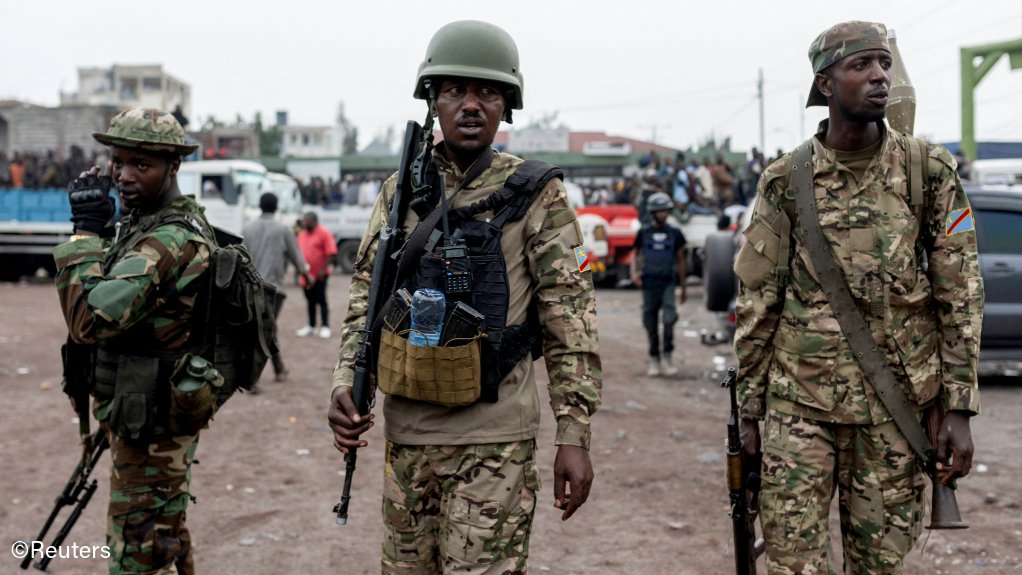The Uneven Application Of Sanctions: Britain, Australia, And The Myanmar Conflict

Table of Contents
The ongoing crisis in Myanmar has prompted a global response, with many nations imposing sanctions to pressure the military junta. However, the application of these Myanmar sanctions has been far from uniform. This article analyzes the approaches taken by Britain and Australia, highlighting the inconsistencies and exploring the implications for the effectiveness of international pressure on the Myanmar regime. We will examine the strengths and weaknesses of their respective sanction regimes and consider the potential for a more coordinated and impactful international strategy.
Britain's Sanctions Regime
Targeted Sanctions:
Britain's approach to Myanmar sanctions centers on targeted measures against specific individuals and entities linked to the military regime. These sanctions typically involve arms embargoes, asset freezes, and travel bans.
- Specific individuals and entities sanctioned: The UK has sanctioned numerous high-ranking military officials, including Min Aung Hlaing, along with entities such as the Myanmar Economic Corporation (MEC) and military-owned businesses involved in the extraction of natural resources like jade and timber. These actions are largely based on the Global Human Rights Sanctions Regulations 2020 and other relevant UK legislation.
- Challenges of enforcement: A significant challenge lies in the enforcement of these Myanmar sanctions, particularly in tracking and seizing assets held abroad through complex financial structures. The opacity of the Myanmar military's financial dealings makes tracing the flow of funds difficult, requiring international cooperation and robust investigative capabilities.
- Scope and limitations: While targeted sanctions aim to disrupt the financial networks supporting the junta, their effectiveness in fundamentally altering the regime's behavior remains debatable. The sanctions' impact is contingent on the extent of international cooperation and the willingness of other nations to enforce them effectively.
Diplomatic Pressure:
Alongside sanctions, Britain has actively pursued diplomatic avenues to address the Myanmar crisis. This involves participation in international forums like the UN Security Council and bilateral engagements with other nations to coordinate a response.
- Specific diplomatic actions: Britain has consistently condemned the military coup, called for the release of political prisoners, and supported the efforts of the National Unity Government (NUG). It has actively participated in UN Security Council resolutions concerning Myanmar and engaged in bilateral talks with regional actors.
- Effectiveness of diplomatic pressure: Diplomatic pressure alone has proven insufficient to significantly alter the junta's actions. However, it complements sanctions by creating a framework for international cooperation and enhancing the legitimacy of the sanctions regime. Its success is largely dependent on the level of consensus achieved among key international players.
Australia's Sanctions Regime
Similarities and Differences with Britain:
Australia has also imposed Myanmar sanctions, mirroring some of Britain's actions but exhibiting notable differences in scope and target selection. Both countries have implemented targeted sanctions against individuals and entities, including arms embargoes and asset freezes.
- Specific sanctions imposed by Australia: Similar to the UK, Australia has sanctioned key military figures and businesses linked to the junta. However, the precise list of sanctioned individuals and entities may vary, reflecting different intelligence gathering and assessment processes.
- Differences in target selection: While both countries target high-ranking military officials, there may be variations in their focus, stemming from different intelligence assessments and strategic priorities. The extent of sanctions imposed on specific sectors of the Myanmar economy may also differ.
- Reasons behind discrepancies: Differences in approach may stem from various factors, including variations in intelligence gathering capacity, differing diplomatic relations with regional actors, and the specific political priorities of each government. Economic considerations may also play a role in shaping sanction strategies.
Focus on Human Rights Abuses:
Australia's Myanmar sanctions have placed a strong emphasis on human rights violations. Sanctions have specifically targeted individuals and entities implicated in the atrocities committed against the Rohingya and other ethnic minorities.
- Examples of sanctions targeting human rights abuses: Australia has sanctioned individuals and entities directly involved in alleged ethnic cleansing and other human rights abuses in Myanmar.
- Effectiveness of focusing on human rights violations: While focusing on human rights abuses strengthens the moral standing of sanctions, it may not be as effective in directly pressuring the junta to change its political trajectory compared to broader economic sanctions that impact the regime's financial capabilities. This approach, however, may resonate more strongly with international public opinion.
The Effectiveness of Sanctions and International Coordination
Shortcomings of Unilateral Sanctions:
The effectiveness of Myanmar sanctions is significantly hampered by their unilateral nature. Individual countries acting alone face challenges in enforcing sanctions effectively.
- Challenges of enforcement with unilateral sanctions: Sanctions evasion is a significant concern when sanctions are not universally applied. Assets can be moved to countries with less stringent enforcement mechanisms. This requires enhanced international cooperation and information sharing to mitigate this issue.
- Need for coordinated international action: A more effective strategy requires a unified front with comprehensive and coordinated international action, involving stronger cooperation among major global players and regional actors. This would significantly increase the pressure on the junta.
The Role of Regional Actors:
The Association of Southeast Asian Nations (ASEAN) plays a crucial role in influencing the effectiveness of Myanmar sanctions. However, ASEAN’s response has been largely ineffective, hampered by its principle of non-interference in member states' internal affairs.
- ASEAN's response and its impact: ASEAN's response has been inconsistent and largely ineffective, struggling to achieve consensus on a unified approach to address the crisis. This lack of regional cooperation undermines the impact of international sanctions.
- Potential for regional cooperation: Strengthening regional cooperation within ASEAN is vital to enhance the effectiveness of sanctions. A unified regional response can create a stronger deterrent to sanction evasion and exert greater pressure on the military regime.
Conclusion
The analysis highlights the inconsistencies in the application of Myanmar sanctions by Britain and Australia, emphasizing the crucial need for international coordination. While targeted sanctions and diplomatic pressure are important tools, their effectiveness is limited without a unified and comprehensive international strategy. The lack of effective regional cooperation, particularly within ASEAN, further undermines the potential impact of these measures. The shortcomings of unilateral action clearly demonstrate the necessity for a more coordinated approach.
Call to Action: The uneven application of Myanmar sanctions highlights the urgent need for a more coordinated and comprehensive international strategy. Further research and collaborative action are crucial to increase the pressure on the military junta and promote a peaceful resolution to the crisis in Myanmar. We urge readers to stay informed about the ongoing situation and advocate for stronger, more effective sanctions against Myanmar and increased international cooperation to address this humanitarian crisis.

Featured Posts
-
 Understanding Bay Area Severe Thunderstorms Forecasts And Safety Measures
May 13, 2025
Understanding Bay Area Severe Thunderstorms Forecasts And Safety Measures
May 13, 2025 -
 Eftertraedaren Till Gasperini Analys Av Potentiella Kandidater
May 13, 2025
Eftertraedaren Till Gasperini Analys Av Potentiella Kandidater
May 13, 2025 -
 Bek Timnas Indonesia Jay Idzes Tampil Cemerlang Di Laga Venezia Vs Atalanta
May 13, 2025
Bek Timnas Indonesia Jay Idzes Tampil Cemerlang Di Laga Venezia Vs Atalanta
May 13, 2025 -
 Doom The Dark Ages Limited Edition Xbox Console Rumor Explained
May 13, 2025
Doom The Dark Ages Limited Edition Xbox Console Rumor Explained
May 13, 2025 -
 Retailers Break Street Date Doom The Dark Age Spoilers Everywhere
May 13, 2025
Retailers Break Street Date Doom The Dark Age Spoilers Everywhere
May 13, 2025
